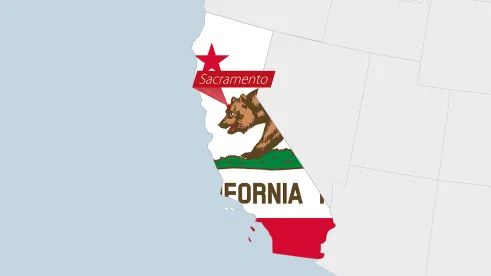California has a new regulatory review process that could have implications for healthcare mergers and acquisitions and similar transactions in the state. By way of background, after nearly two years of negotiations with state legislators, Governor Gavin Newsom signed into law healthcare omnibus bill SB 184 on June 30, 2022, which created the new Office of Health Care Affordability (OHCA). With this new law and state agency, California joins several other states, including Massachusetts, New Jersey, Oregon, Washington and Nevada in implementing oversight and funding measures geared towards healthcare cost growth targets and containment. While the goal of the law appears to be clear – monitoring and managing the costs of healthcare in California – healthcare industry stakeholders seeking to carry out applicable transactions will now need to be mindful of OHCA’s regulatory review authority.
While much recent focus has been made on a somewhat similarly-focused law, the “Healthcare Consolidation and Contracting Fairness Act of 2022” or “AB 2080” (see our healthcare law blog analysis earlier in 2022 regarding the proposed legislation), it was SB 184 and not AB 2080 that was passed in advance of the September 2022 legislative recess. As a result of the law, beginning in April 2024, OHCA will have advance review authority over mergers, acquisitions, corporate affiliations and other transactions that result in material changes of assets control or governance of “health care entities.” For purposes of this law, “health care entities” include payors (including Knox-Keene plans, licensed health insurers, publicly-funded healthcare programs such as Medicare and Medi-Cal, and third party administrators), providers (including healthcare facilities such as hospitals, outpatient clinics, physician groups with 25 or more physicians, clinical laboratories, and imaging centers) and fully integrated delivery systems.
Subject to certain exceptions, healthcare entities will be required to provide OHCA at least 90 days’ prior written notice of an applicable agreement or transaction. Generally speaking, such an agreement or transaction would include (i) the sale, transfer, lease, exchange, option, encumbrance, conveyance or disposal of a material amount of a healthcare entity’s assets to one or more entities and (ii) the transfer of control, responsibility, or governance of a material amount of the assets or operations of the healthcare entity to one or more entities. Subsequently, OHCA will have 60 days within receipt to decide to conduct a cost and market impact review and create a public report or grant a review waiver. Transactions are not permitted to proceed without a waiver or completion of the review process. If OHCA opts to review, it will have the power to investigate and subpoena healthcare entities and other relevant market players to submit data and documents. There is no specific minimum or maximum timeframe for OHCA to complete its review, but importantly, the transaction may not be completed until 60 days following the issuance of a final report from OHCA.
As previewed above, not all healthcare transactions and entities will be subject to this advance review process. Indeed, transactions within the scope of existing market oversight responsibilities of the Department of Managed Health Care (DMHC), the Attorney General and the Department of Insurance are explicitly exempt from this process. Also exempt are certain transactions from state counties acquiring entities in the pursuit of increased healthcare access. Ultimately, heath care industry players considering entering into transactions within the regulatory scope of OHCA will need to take into account this advance review process, which could certainly affect the timing of transactions, the assets and entities included in such transactions, and the legal costs of complying with and participating in the regulatory review process, among other things. Additionally, industry stakeholders will need to give thought in addressing confidentiality concerns associated with a transaction under OHCA review, as information submitted to OHCA by the transaction parties could become public record. OHCA generally has an obligation to keep confidential all nonpublic information not required as a part of the notice to OHCA or from the parties as a part of the review process, but there are certain exceptions (namely, information disclosed to the Attorney General, and information in a preliminary report or final report if made in the public interest, after providing the applicable party with an opportunity to object).
OHCA’s eight-member board was formally appointed on February 28, 2023, and is expected to regularly meet in the coming months and issue emergency regulations under the new regulatory framework this year, which should flesh out further details regarding the transactions subject to review, the notice and review process, and filing fees, among other things. Moreover, the board is expected to develop a statewide cost growth target methodology, from which cost growth targets for each year will be set. As such activity commences and regulations are issued in the coming months, we will analyze their potential impact on industry stakeholders.



 />i
/>i

